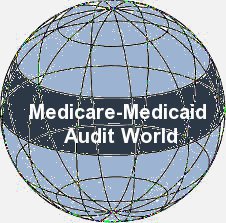 Last week the Department of Health and Human Services Office of Inspector General released its fiscal year 2013 Work Plan describing the issues it intends to investigate during the fiscal year beginning October 1, 2012. In the section of the Work Plan devoted to Parts A and B of Medicare, the OIG identified its concerns with the operation of the Medicare Administrative Contractors (MAC) and the Medicare Recovery Audit Contractors.
Last week the Department of Health and Human Services Office of Inspector General released its fiscal year 2013 Work Plan describing the issues it intends to investigate during the fiscal year beginning October 1, 2012. In the section of the Work Plan devoted to Parts A and B of Medicare, the OIG identified its concerns with the operation of the Medicare Administrative Contractors (MAC) and the Medicare Recovery Audit Contractors.
The OIG’s Concerns With the Performance of the MACs
 In addition to being concerned about CMS’ ability to adequately monitor and assess the performance of the various MACs, the OIG is concerned with whether the MACs have consolidated all Part A and Part B edits within their jurisdiction, have developed and tested final edits, implemented and used initial, local system, and medical review edits and evaluated edit effectiveness. On a related subject, the OIG is also concerned about Part B claims that were suspended for manual prepayment review on the basis of system edits but on which the reviews were not conducted. According to the OIG, because manual review is more timely and costly to the contractor, some suspended claims might not be reviewed but paid inappropriately. In sum, the OIG believes that the MACs may be paying too many improper claims.
In addition to being concerned about CMS’ ability to adequately monitor and assess the performance of the various MACs, the OIG is concerned with whether the MACs have consolidated all Part A and Part B edits within their jurisdiction, have developed and tested final edits, implemented and used initial, local system, and medical review edits and evaluated edit effectiveness. On a related subject, the OIG is also concerned about Part B claims that were suspended for manual prepayment review on the basis of system edits but on which the reviews were not conducted. According to the OIG, because manual review is more timely and costly to the contractor, some suspended claims might not be reviewed but paid inappropriately. In sum, the OIG believes that the MACs may be paying too many improper claims.
The OIG’s Concern With the Performance of the RACs
 As opposed to its concern with the MACs’ performance in specific areas, the OIG Work Plan does not identify any specific concern with the performance of the RACs. Rather, the Work Plan states that the OIG intends to “review the extent that Recovery Audit Contractors (RAC) identified improper payments, identified vulnerabilities, and made potential fraud referrals in 2010 and 2011.” The OIG will also review CMS’ actions in resolving RAC-identified vulnerabilities, addressing potential fraud referrals, and in evaluating RAC performance in 2010 and 2011. Apparently the OIG does not believe that the problems with the RAC program identified by the American Hospital Association, the American Medical Association and other professional organizations as well as some members of Congress warrant investigation.
As opposed to its concern with the MACs’ performance in specific areas, the OIG Work Plan does not identify any specific concern with the performance of the RACs. Rather, the Work Plan states that the OIG intends to “review the extent that Recovery Audit Contractors (RAC) identified improper payments, identified vulnerabilities, and made potential fraud referrals in 2010 and 2011.” The OIG will also review CMS’ actions in resolving RAC-identified vulnerabilities, addressing potential fraud referrals, and in evaluating RAC performance in 2010 and 2011. Apparently the OIG does not believe that the problems with the RAC program identified by the American Hospital Association, the American Medical Association and other professional organizations as well as some members of Congress warrant investigation.
The Concerns of Others With the Performance of the RACs
Since its inception, the structure of the RAC program has been the subject of considerable unfavorable comment by Medicare providers. In an April 3, 2012 letter, the leaders of 35 professional organizations representing doctors expressed their opposition to CMS’ plan to have RACs conduct prepayment reviews because “[t]he program’s contingency fee structure inappropriately incentivizes the Recovery Auditors to conduct “fishing expeditions” that are exceedingly burdensome for physician practices” and because “[t]hey [Recovery Auditors] are incapable of efficiently or accurately conducting prepayment review.”
 Medicare-Medicaid Audit World
Medicare-Medicaid Audit World










 conduct a project to demonstrate the use of recovery audit contractors in identifying underpayments and overpayments under Parts A and B of Medicare and to recoup overpayments. Congress further provided that payment may be made to the RACs on a contingent basis from amounts they recovered. In § 302 of the Tax Relief and Healthcare Act of 2006,
conduct a project to demonstrate the use of recovery audit contractors in identifying underpayments and overpayments under Parts A and B of Medicare and to recoup overpayments. Congress further provided that payment may be made to the RACs on a contingent basis from amounts they recovered. In § 302 of the Tax Relief and Healthcare Act of 2006,